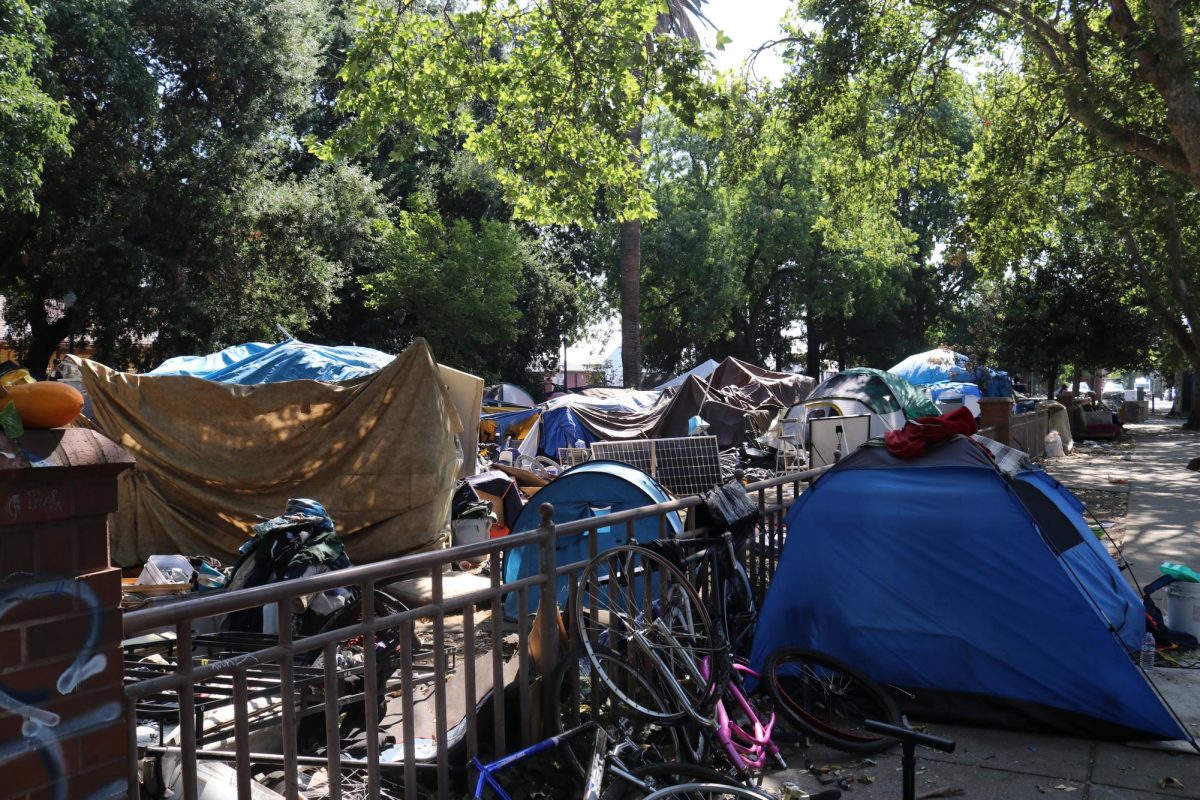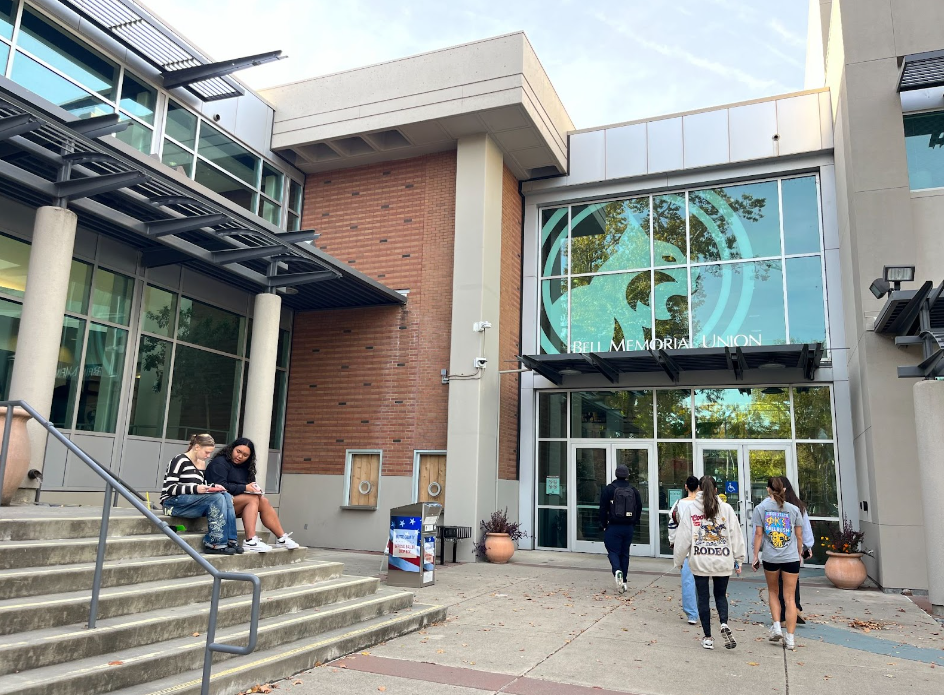The City of Chico filed an 80-page motion on Aug. 31 which proposes withdrawal from the Warren v. Chico settlement.
The Warren v. Chico settlement was finalized two years ago, resulting in the creation of multiple regulations and procedures related to Chico’s treatment of its homeless population.
The settlement agreement came to be largely as a result of Martin v. Boise, which decided that a city could not enforce anti-camping ordinances against homeless people who sleep on public property if there is a lack of indoor sleeping space available for them to move to.
If the City of Chico wanted to evict an encampment, they were required to not only have enough beds available to do so, but to go through a minimum 17-day process with 72 hours of prior notice posted at the site of eviction.
The city was also limited to being able to dismantle three encampments at once, no matter how many exist simultaneously.
The City of Chico was also required to make and fund shelter. They built 177 Pallet shelters each containing two beds, although those inside the shelter were not required to have a roommate.
Additionally, there were also three other city-maintained legal campsites, including the Alternative Site, built for those deemed ineligible for the Pallet Shelter or Torres Shelter. A public call line was established to be run by an outreach and engagement team who would respond and provide assessments and intakes to local shelters.
The idea was that through the settlement agreement, those who broke the city’s anti-camping ordinances would be slowly identified, assessed and offered — not forced into — shelter by a trained outreach and engagement team instead of being criminally prosecuted.
The agreement was supposed to last until Jan. 13, 2027, although the City of Chico now seeks relief because enforcement of the settlement’s camping ordinances has “[impaired] the City’s ability to maintain the health and safety of the community at large.”
The motion to withdraw lists 11 main grounds outlining the precedents of the case.
Two of these grounds reference the Supreme Court’s 6-3 decision in Grants Pass v. Johnson earlier this year, which reversed Martin v. Boise and made it federally legal for cities to punish those who sleep outside.
The City of Chico filed an amicus brief — which is a document filed by a party not involved in the specific case, but who still has strong legal interest in it — in support of Grants Pass, Ore. on Nov. 3, 2023.
The other nine grounds listed in the motion all roughly say the same thing: after $12,991,027 spent, the settlement is not working out for the city.
The terms in the settlement “resulted in a deterioration of the downtown community and the quality of life in neighborhoods,” and “degradation of the City’s public spaces.”
The motion for relief argues that the settlement agreement has fulfilled its Stipulated Order — or, the original agreement — for the homeless people of Chico who have been willing to accept assistance, and that the settlement “provides no prohibition or sanction for those who refuse the shelter space offered to them and then move right back to the public space that was just cleared.”
The motion highlights this by stating there is an average of 28 Pallet Shelters available, but unoccupied, every night.
The city promises to continue operating the Pallet Shelters through at least early 2027 as per the original agreement, as well as one alternate site of the City of Chico’s choosing until the end of 2024.
Council Member Addison Winslow has another perspective on why the settlement agreement did not go as efficiently as planned.
It has to do with limitations placed on the outreach and engagement team, who perform intakes and assessments for shelters.
“It was kind of like a phantom intake process,” Winslow said. “They had hundreds of voicemails stacked up. Eventually, the city agreed to go through 10 voicemails a [week] of people wanting to get into the Pallet Shelter.”
The lack of attention to the call line resulted in people contacting it and waiting months for a response, if ever getting one at all.
“The City … created a situation where the only way to get into the Pallet Shelter or the Alternative Site, you need to go through an assessment,” Winslow said.
With the lack of attention to the call line, the quickest way to get an assessment is to be evicted during an encampment sweep. But to be evicted, you have to be a priority.
Since the settlement agreement results in a maximum of three camps being removed at once, the most bothersome camps are naturally given higher priority for removal.
This encourages the unhoused to act like more of a nuisance to the public in order to receive faster help, sometimes putting themselves in bike paths, walkways and outside of businesses.
“To plant yourself in the worst place, to bother the most people, is the best way to get into the Pallet Shelter. That’s been the situation for years now,” Winslow, who has previously been threatened with legal action by the City Council, said.
On June 1, the 2023-24 Grand Jury Report was published.
It is a comprehensive document compiled by 19 carefully-selected individuals which evaluates government branches and agencies to ensure they are operating appropriately and efficiently. Two sections of the report involved Chico’s handling of the homeless population.
Part of the motion for relief states, “The simple fact is that some people refuse to use available shelter, even when it is safe, clean, free and offered with a wide range of amenities, including free meals.”
The Grand Jury Report concluded that the City mishandled multiple aspects of the Alternative Site, including mismanagement of human waste facilities, lack of regular trash pick up and only supplying a single water source for the entire campground.
District 1 Council Member Sean Morgan disagrees with the Grand Jury’s credibility, its report’s findings and its recommendations.
“My response, to the entire report, is ‘go pound sand,’” Morgan said during a city council meeting. “[The Grand Jury expects us to spend] more and more millions of taxpayer dollars on people who reject the services? On people with uncontrolled, unleashed dogs, convictions, offenses that we can’t talk about?”
Winslow acknowledged that the settlement isn’t perfect, but he still believes it represents enormous progress.
Legal Services offered the city the chance to clear out all the homeless encampments in town more than a month ago as long as they continued to maintain the shelter-related portions of the agreement, according to Winslow.
However, the City Council rejected this offer and filed a motion for withdrawal.
“We don’t want to create a workable situation with them because our case to get out of the settlement hinges on us saying it’s unworkable for us to be in this agreement entirely,” Winslow said.
The Orion has reached out to Sean Morgan for comment.
Anthony Vasek can be reached at orionmanagingeditor@gmail.com or anthonydvasek@gmail.com.












Johnna Guess // Sep 19, 2024 at 6:54 pm
My 13-year-old son and I are unhoused living in our truck. I am a taxpaying citizen and I know plenty of people that live in the pallets that are tax paying citizens also but there’s no sliding scale of how you get into the pallets achieve your goals and then move onto something else so that it could be a rotating door for those trying to aspire to have more than a pallet as their shelter. I know managers of businesses that live in the pallet shelter, rent free why is there not an income scale so if you live in the pallet and you make so much that means you’re able to provide for yourself and be more self sustainable . Also, with the target teams and intake people they judge by the way you look I was literally told by an intake work. . Also, with the target teams and intake people they judge by the way you look, I was literally told by a intake worker of the Torres shelter that I would not be accepted to the Torres shelter because of the of my dog that is an ESA and I have a letter from my doctor. I was told that an ESA is not good enough and they only except service although when I speak with the target team from housing navigators they tell me that they take people to the Torres That have dogs that are not service animals.
It’s also very hard to find somewhere if you have a vehicle that you live in to park and be safe without supposedly breaking the law because you don’t fit into any of the little criteria to be at any of these shelters.
I am recently homeless only about three months now with my son and my dog and the way I watch the house community be treated is appalling. There’s a small percentage of the house list that put out a bad rap or look on the community but when there is a majority of the homeless That are elderly and veterans and family or mentally ill and they can’t even help themselves to get off the streets because there’s no resources for that and then you keep pushing them down by allowing there to be malicious that go around shooting at the house list with airsoft rifles or pellet guns It’s sickening. I would say I’m houseless instead of homeless but this isn’t my hometown anymore. I am a Chico native. My son grew up here his entire life. He is also a Chico native Chico is not what Chico used to be the fact that they are trying to hide their homeless trying to criminalize , being homeless breaks my heart and is appalling to watch. The corruption with our city council and the shelters and law-enforcement is actually laughable and what sucks is the community of Chico is blind, if not following in its footsteps and showing that it’s OK.